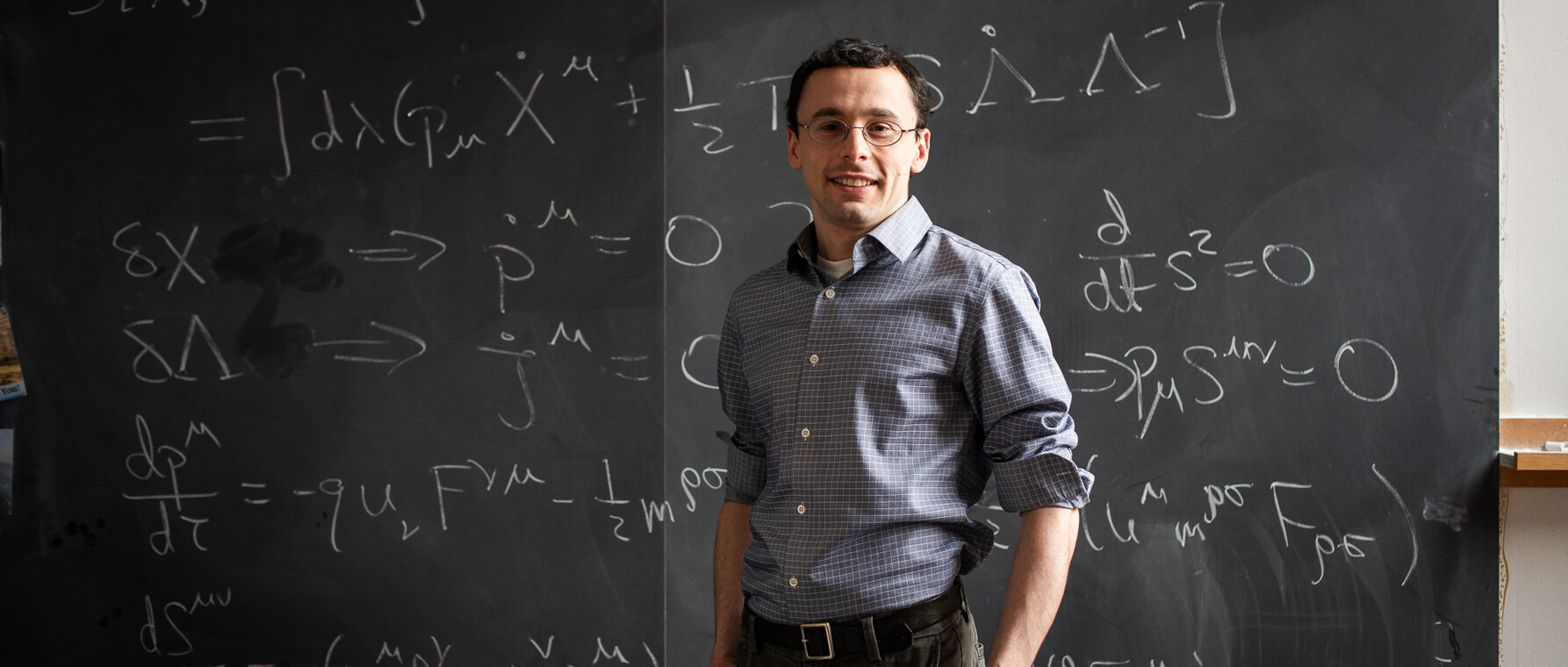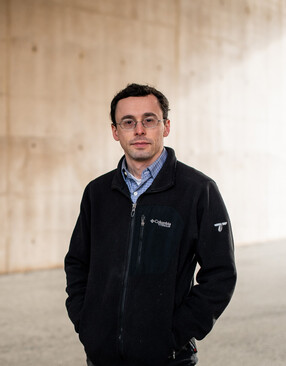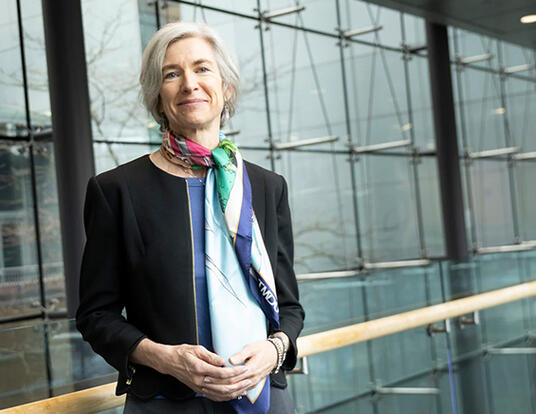The Power of Checking In
Jacob Barandes draws on his own GSAS experience to advise current students

Jacob Barandes, PhD 11, learned a great deal studying high energy theoretical physics as a doctoral student at GSAS. But in many ways, it was the knowledge he didn’t have that had the greatest influence on him.
“There was a lot I didn't know about how to be a graduate student,” Barandes remembers, “and what's more, I didn't know how to identify what I didn't know and effectively seek out help when I needed it.”

Now co-director of graduate studies and a lecturer in the Department of Physics, Barandes teaches and does research in physics and philosophy of science. He also advises more than 200 GSAS students, providing them with the help they need to succeed. This emphasis on the mentoring relationship is one aim of The Advising Project, an initiative launched by Dean Emma Dench in 2019.
Barandes says that the key to effectively advising new students is to meet with them on a regular basis. First-year students meet with Barandes individually during their first term, and he meets with every second-year student during the spring. After that, advisees are required to complete an annual progress report, which he reviews. If he becomes aware that a student is having challenges with a class or with teaching, he’ll reach out proactively.
“Being an effective advisor requires you to keep an eye out and check in, rather than waiting for students to come to you,” he says. “And if they're okay, then it's fine. But if they're not, they might not have realized that reaching out to me is an option.”
My role is not to judge. It’s to listen and help.
-Jacob Barandes, PhD ’11
Barandes’ philosophy about checking in is driven as much by his own experience as by the desire to provide students the tools they need to succeed. “When I was a graduate student, I didn't know that it was okay to need help and to ask for it,” he says. “By reaching out, I'm letting them know that it is okay, that by seeking out advising they can become better at handling what they need to.”
Key to this approach is providing an environment that is as safe and free of judgment as possible. “My role is not to judge. It’s to listen and help,” he says. “When your sole objective is to hear a student out and see how you can help them, in my experience, it makes students more willing to open up.”
By providing the right environment and listening carefully, Barandes can transition to problem solving whether by brainstorming possible solutions, directing students to resources, or, if they approve, taking direct action himself. Sometimes, though, a student just wants to be heard. “That can sometimes be the hardest part,” he shares. “Knowing when to do nothing.”
Consistent with the philosophy of The Advising Project, Barandes encourages his students to make academic decisions deliberately and to seek out support from a variety of sources beyond their advisor. “Many students who go straight to the thing they think they want wind up changing advisors and research groups later in the program,” cautions Barandes. “It’s important to be patient with the process, to try things out, to look for an advisor and a research team that really fits.”
Barandes can see parts of his own experience in most of the students he advises, whether they are grappling with academic or personal concerns. Even so, he never knows what to expect when a student walks through his door for assistance. “Very frequently I'm confronted with challenges that I have never seen before,” he says. “So, I'm always learning from these advising conversations and trying my best to help people at the same time.”
Photos by Jared Leeds
Get the Latest Updates
Join Our Newsletter
Subscribe to Colloquy Podcast
Simplecast Stitcher




